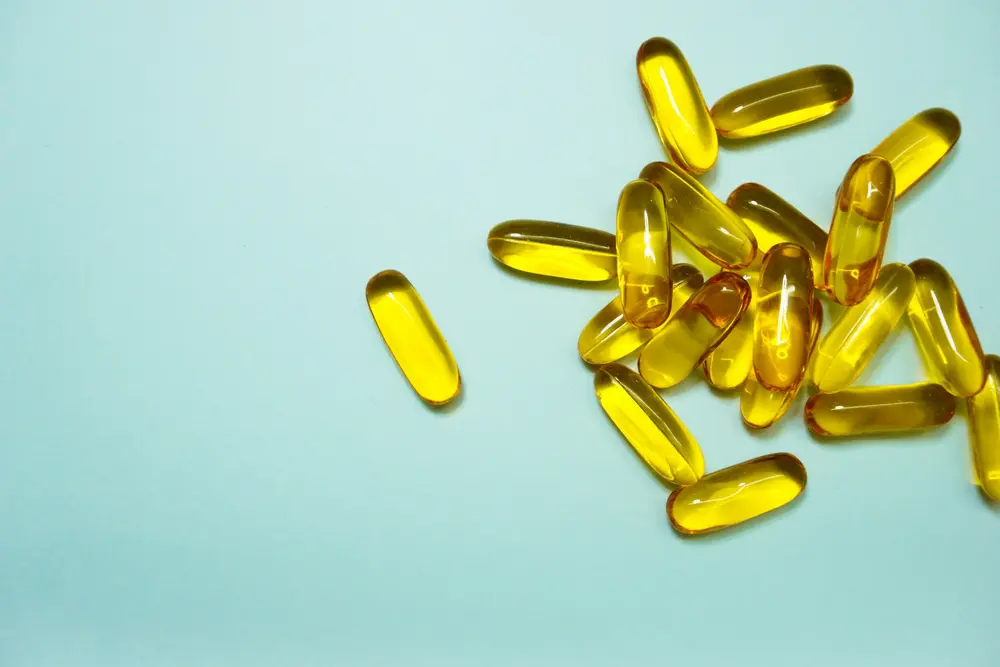Can You Stop Taking Fish Oil Suddenly? Debunking Myths
Fish oil, loaded with omega-3 fatty acids, has been my go-to for boosting overall well-being. It’s like that friend who’s always there to lift you up, offering a myriad of health benefits. But what happens when you decide it’s time to part ways? Can you just stop taking fish oil suddenly, or is it a relationship that requires a gradual goodbye?
I’ve been curious about the effects of stopping fish oil supplements, especially for those of us who’ve been taking them as part of our daily routine. It turns out the answer isn’t a simple yes or no. It depends on how long you’ve been taking them and why. Let’s dive into what I found.
Potential Effects of Suddenly Stopping Fish Oil
When it comes to stopping fish oil intake abruptly, there’s more to it than meets the eye. What might seem like a simple change in your supplement routine could have several unexpected effects on your health, particularly if you’ve been taking it for a long time. Let’s dive into some key areas that might be impacted.
Impact on Cognitive Function
Fish oil is renowned for its omega-3 fatty acids, essential nutrients that play a crucial role in brain health. I’ve read studies indicating that these fatty acids, particularly EPA and DHA, contribute to improved cognitive function, memory, and have even been linked to reducing the risk of Alzheimer’s disease. So, what happens when you suddenly stop taking fish oil? Well, the abrupt deprivation of these essential nutrients could potentially lead to a decline in cognitive functions. Though it’s not like you’ll wake up unable to remember where you put your keys, you might notice subtle changes, such as difficulties in focusing or memory lapses.
Risk of Blood Clotting Reversal
One of the benefits of fish oil I’ve always found intriguing is its ability to reduce blood clotting, thanks to its EPA and DHA content. This property is especially beneficial for those at risk of heart disease. If you stop taking fish oil suddenly, you might reverse this benefit, potentially increasing your risk of developing blood clots. This doesn’t mean you’ll immediately face heart problems, but it’s a risk factor worth considering, especially if heart disease runs in your family.
Mood Changes and Mental Health Implications
Fish oil’s benefits aren’t limited to physical health; they extend to mental health, too. Omega-3 fatty acids are believed to play a role in regulating mood and could even contribute to treating depression. Hence, cutting fish oil out of your diet abruptly might lead to mood swings or exacerbate existing mental health conditions. It’s something I ponder a lot since mood and mental well-being are so central to our daily lives.
Nutrient Deficiencies and Health Consequences
Lastly, stopping fish oil supplements all of a sudden might lead to an omega-3 fatty acid deficiency, particularly if your diet isn’t rich in these nutrients. Omega-3s are not just about brain or heart health; they’re critical for maintaining healthy skin, reducing inflammation, and even supporting eye health. The health consequences of omega-3 deficiency could be subtle at first but escalate over time, affecting various aspects of your well-being.
In each of these areas, the impact of suddenly stopping fish oil supplements might not be immediately noticeable, but the long-term implications are worth considering. It’s always best to discuss any changes to your supplement routine with a healthcare professional, ensuring you’re making the best choice for your health.
Safe Discontinuation of Fish Oil Supplementation
Deciding to stop fish oil supplements isn’t something I take lightly, especially considering their benefits. It’s like finally deciding to clean out that old junk drawer; you know it needs to happen, but figuring out where to start can be daunting. Today, I’ll share how I approached this decision with care and thoughtfulness, ensuring it was done safely and effectively.
Gradual Reduction Method
I started by gradually reducing my fish oil dosage rather than stopping cold turkey. This method seemed more gentle on my system, allowing my body to adjust without shocking it by suddenly removing something it’s accustomed to. I liken it to slowly easing into a cold swimming pool, giving myself time to adjust rather than jumping in all at once.
Consulting Healthcare Professionals
I’m all for DIY and figuring things out on my own, but when it comes to health, I believe in consulting the experts. That’s why I reached out to my healthcare provider to discuss my plan to stop taking fish oil. They offered personalized advice based on my health history and current needs, ensuring I was making a well-informed decision. It’s like having a personal guide in uncharted territory.
Monitoring for Adverse Effects
As I began to reduce my fish oil intake, I kept a close eye on how my body reacted. Monitoring for any adverse effects was crucial, ensuring that my well-being remained a top priority. I learned that it’s important to listen to my body’s signals, making adjustments as necessary. It’s similar to tuning an instrument, striving for that perfect harmony.
Incorporating Dietary Sources of Omega-3 Fatty Acids
Knowing the importance of omega-3 fatty acids in my diet, I explored natural dietary sources to fill the gap left by discontinuing fish oil supplements. I started incorporating more oily fish, like salmon and mackerel, along with flaxseeds and walnuts, into my meals. It felt empowering to nourish my body with these wholesome foods, making each meal a step towards maintaining my omega-3 levels without relying on supplements.
Understanding the Role of Fish Oil in the Body
Benefits of Omega-3 Fatty Acids
When I first decided to dive deeper into the world of supplements, Omega-3 fatty acids were among the first items that caught my attention. And for good reason: they’re essential fats the body can’t make from scratch but must get from food. Found in abundance in fish oil, these fatty acids play critical roles in brain function, mental health, and inflammation reduction. I learned that Omega-3s aren’t just beneficial; they’re fundamental to maintaining a healthy balance in the body. They help with everything from cognitive health to keeping our hearts ticking properly. It’s like discovering that one ingredient in your pantry can drastically improve several recipes; that’s Omega-3s for your body.
Fish Oil’s Contribution to Cardiovascular Health
Moving on, I stumbled upon an even more compelling reason to consider fish oil as part of a daily regimen – its impact on cardiovascular health. According to research, including some major studies, fish oil supplements can have significant effects on heart health. They do this by lowering triglyceride levels, reducing blood pressure, and diminishing the risk of heart arrhythmias. In the STRENGTH trial, although Omega-3s didn’t show a significant reduction in the primary endpoint in a general population of high cardiovascular risk patients, there was a noteworthy 15% reduction in coronary events for patients with established cardiovascular disease who received Omega-3s. This piece of information was particularly striking to me; it painted a picture of how incorporating fish oil into one’s diet could be a game-changer for people with heart problems.
Fish Oil and Joint Health Considerations
Lastly, my exploration led me to the relationship between fish oil and joint health, an area especially close to my heart as someone who makes it a point to stay active and enjoys running. Inflammation is a common issue among those who lead an active lifestyle or suffer from conditions like arthritis. Omega-3 fatty acids, abundant in fish oil, have been shown to significantly reduce joint pain and stiffness owing to their anti-inflammatory properties. It’s fascinating to think of fish oil not just as a supplement but as a natural remedy that supports joint flexibility and comfort, empowering me to continue doing the activities I love without being held back by pain.
Alternative Approaches to Omega-3 Supplementation
As we delve deeper into the world of Omega-3s, it’s fascinating to see how many options we have at our disposal. I’ve always been a curious soul, eager to explore every avenue. So, let’s break down some alternative approaches to Omega-3 supplementation together.
Evaluating Different Forms of Omega-3 Sources
When considering Omega-3s, most of us immediately think of fish oil capsules. But did you know there are other forms out there? Algal oil is a fantastic plant-based alternative, deriving Omega-3 directly from algae, the fish’s original source of this fatty acid. Algal oil primarily provides DHA, which is vital for brain health.
Then, there’s krill oil, another marine source, but with a different twist. Krill oil contains Omega-3s in a phospholipid form, which might be easier for the body to use than the triglyceride form found in most fish oils. It also contains the antioxidant astaxanthin, giving it an extra health kick.
Transitioning to Natural Dietary Sources
While supplements are convenient, nothing beats getting nutrients directly from food. I’ve been researching how to include more Omega-3-rich foods in my diet and it’s been quite a joyful exploration. Fatty fish like salmon, mackerel, and sardines are fantastic sources and aim to include them in my meals twice a week.
For those who lean towards a plant-based approach, fear not! Flaxseeds, chia seeds, and walnuts are excellent non-fish sources of ALA, a type of Omega-3 fatty acid. Although ALA’s conversion rate to DHA and EPA is low, including these in your diet can still contribute to your overall Omega-3 intake.
Adjusting Dosage and Exploring Supplement Alternatives
I’ve been contemplating my own fish oil regimen and considering whether I need to adjust my dosage or perhaps explore some supplement alternatives. One thing I’ve realized is that personal health journeys are exactly that – personal. What works for one person might not for another.
If you’re contemplating adjusting your Omega-3 intake, it might be beneficial to have a chat with a healthcare provider. They can offer guidance based on your specific health needs and goals. For example, if you’re already consuming a diet rich in Omega-3s, you might not need as high a dosage in supplement form.
Exploring other supplementation forms, like those mentioned earlier, algal or krill oil, can also diversify your nutrient sources. It’s about finding what aligns with your lifestyle, dietary preferences, and health goals.
Consultation and Medical Advice
Importance of Professional Guidance
When considering making any changes to my supplement regimen, including stopping fish oil suddenly, I’ve found it paramount to seek professional guidance. I understand the desire to make changes based on what I’ve read or heard, but nothing replaces the tailored advice from a healthcare provider. These professionals possess the expertise to interpret medical studies, understand potential side effects, and provide personalized recommendations. By discussing my intentions with them, I can avoid potential health risks and ensure that any changes I make are beneficial, rather than harmful, to my overall well-being.
Tailoring Fish Oil Use to Individual Health Needs
Each person’s health journey is unique, which is why tailoring fish oil use to individual needs is so critical. In my conversations with healthcare providers, I’ve learned that factors such as age, dietary habits, and pre-existing health conditions play a significant role in determining the appropriateness and dosage of fish oil supplements. For instance, I discovered that due to my own health profile, the standard dosage I was taking was not optimal. My doctor adjusted the amount to better suit my specific health requirements, underscoring the importance of individualized healthcare strategies.
Addressing Potential Interactions with Other Medications
One aspect that should never be overlooked is the potential interactions fish oil might have with other medications. Through my research and discussions with healthcare professionals, it’s clear that while fish oil offers many benefits, it can also interact with medications like blood pressure drugs, causing blood pressure to drop too low. Additionally, it’s been highlighted to me that fish oil might increase the effects and side effects of certain medications such as cyclosporine. Acknowledging these interactions and understanding the need to monitor them closely has made me more mindful of the importance of comprehensive healthcare guidance when considering supplement use.
Addressing Common Concerns and Myths
I’ve come across quite a bit of confusion about fish oil supplements. Let’s clear the air. First and foremost, the idea that stopping fish oil suddenly could cause withdrawal symptoms is one of those myths that needs to be tackled head-on. After digging into the research and consulting with healthcare professionals, I’ve learned that fish oil supplements, unlike some medications, don’t cause dependency or withdrawal symptoms if you decide to stop taking them. This misconception may stem from the general belief that all supplements or medications have withdrawal phases, which simply isn’t true for fish oil.
Another common myth is that taking fish oil guarantees heart health. While it’s true that Omega-3s — the key component of fish oil — have been linked to various heart health benefits, they are not a cure-all. I’ve seen a tendency to oversimplify, suggesting that fish oil is all you need for a healthy heart. In reality, it’s one piece of the puzzle, complementing other important factors like diet, exercise, and not smoking.
Recognizing the Limitations of Fish Oil Benefits
Understanding the limitations of fish oil’s benefits is just as crucial as debunking the myths surrounding its use. For starters, fish oil is not a Magic Bullet for chronic diseases. Some people believe that it can drastically reduce the risk of diseases like Alzheimer’s or cancer. However, the research is nuanced and shows that while Omega-3s can support overall health, they’re not a standalone treatment or preventative measure for these conditions.
It’s vital to approach fish oil supplementation with realistic expectations. The benefits of Omega-3 fatty acids include support for cardiovascular health, possibly improving mental health, and reducing inflammation, but they’re part of a broader health strategy. They work best when combined with a balanced diet, regular physical activity, and other healthy lifestyle choices. Remember, supplements are meant to “supplement,” not replace other health-promoting actions.
Conclusion
I’ve taken you through the ins and outs of fish oil supplementation, debunking myths and setting the record straight on what it can and cannot do for your health. It’s clear that while fish oil has its benefits, it’s not a magical solution to all health woes. Before you make any changes to your supplement routine, it’s crucial to chat with a healthcare provider. They’ll give you the best advice tailored to your unique health needs and dietary habits. So, if you’re considering stopping fish oil suddenly, don’t worry about dire consequences but do seek professional guidance. Here’s to making informed health decisions based on solid evidence!
FAQ – Frequently Asked Questions
How long should you take fish oil supplements?
The duration for taking fish oil supplements varies, as it can be beneficial over short and long periods – weeks, months, or even years. The key is to customize the duration based on individual health goals and in consultation with a healthcare provider to avoid side effects.
Does fish oil cause weight gain?
While fish oil is recommended for weight management, excessive intake can lead to weight gain due to its high fat and calorie content. Moderation is crucial to prevent unwanted increases in metabolic weight and the potential risk of insomnia associated with high fatty acid consumption.
How long until fish oil is out of your system?
Omega-3 fatty acids from fish oil typically reach the bloodstream within hours of consumption. Measurable changes in cell omega-3 levels can be seen within days, and it usually takes several days to a week for fish oil to be completely eliminated from the system.







